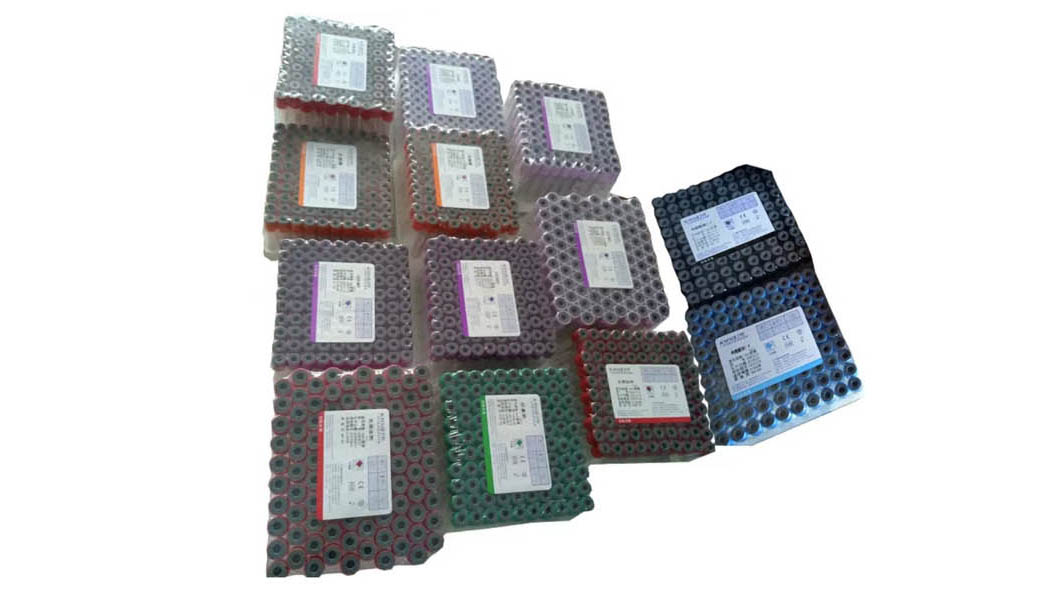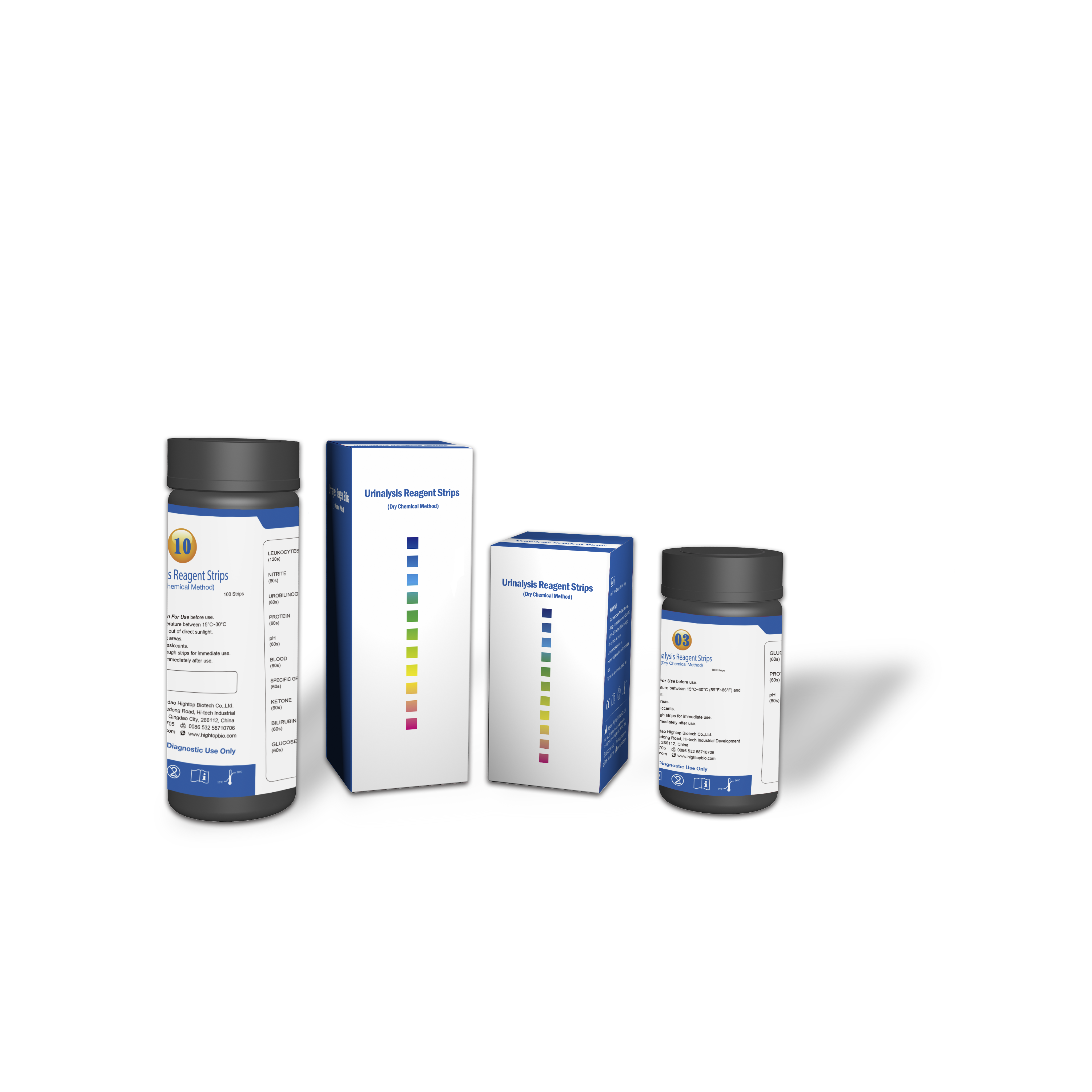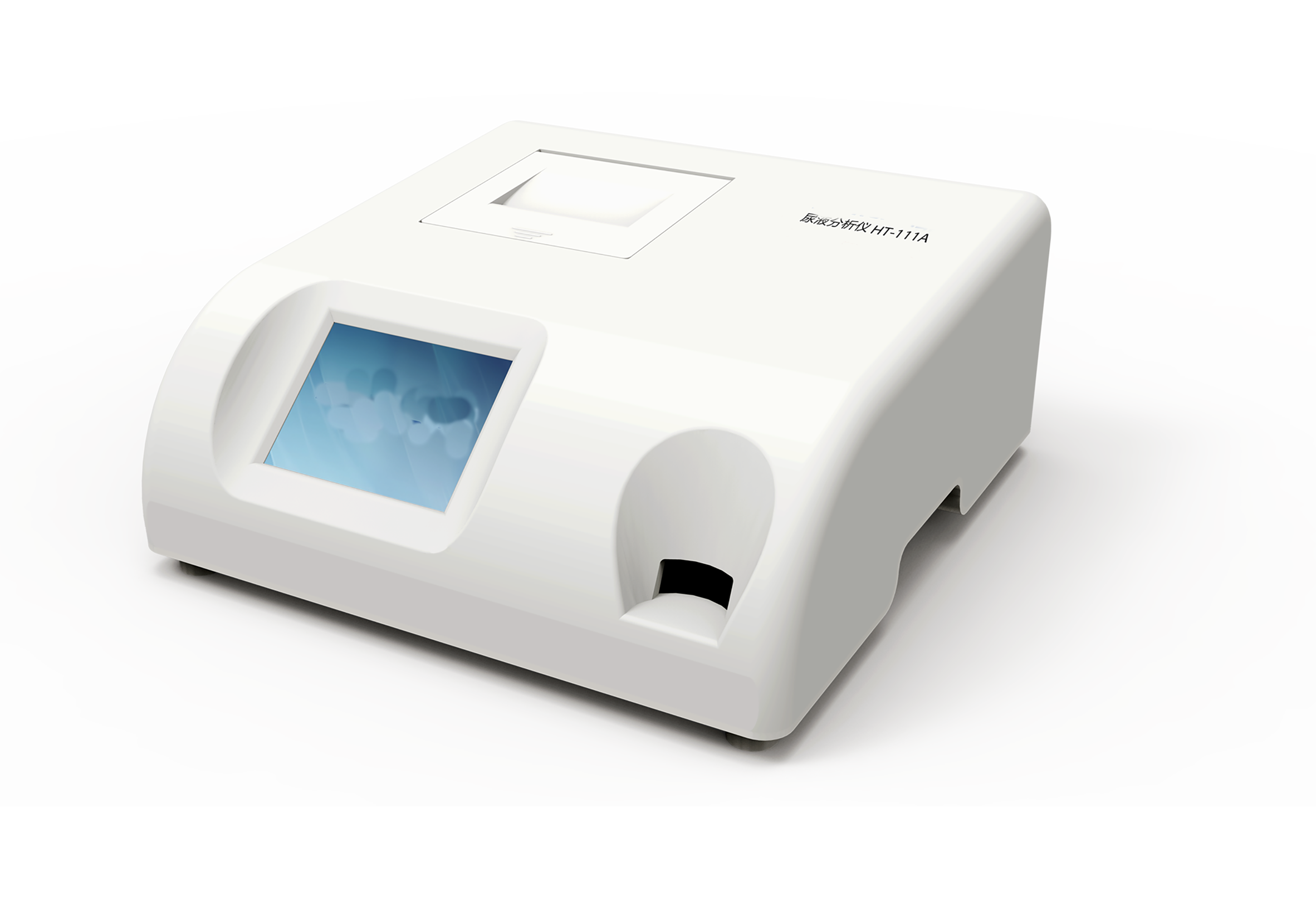Urinalysis Strips are a great tool to get insight into the patient’s overall health and their metabolic, liver and kidney functions. It is a very cost effective screening tool. The Urinalysis Strips are very reliable and have comparable performance to the market leaders.
Leukocytes(LEU): The detection of white blood cells in the urine suggests a possible UTI.
-
Expected result : Negative
Nitrite(NIT): Screening for possible asymptomatic infections caused by nitrate-reducing bacteria – Suggesting a possible UTI. Note: These two parameters (Leukocytes and Nitrite) are commonly used to screen for possible Urinary Tract Infection (UTI)
-
Expected result : Negative
Urobilinogen(URO): the presence of excreted urobilinogen suggests a possible deterioration of liver functions. Urobilinogen is the breakdown product of bilirubin
-
Expected result: less than 17 µmol/l (< 1mg/dl)
Protein(PRO): This test is usually run to screen for kidney disease. Protein in the urine is called Proteinuria.
-
Expected result: Negative
pH: Measures the acidity in your urine which may be a sign of kidney stones. Your pH varies during the day going from more acid in the am to more alkaline in the pm.
-
Expected result : Low
Blood(BLD): Blood in the urine is called hematuria. A number of things can cause hematuria including UTI, Kidney infection, medication, menstruation, strenuous exercise
-
Expected result: Negative
Specific Gravity(SG): Evaluates the body’s water balance (hydration) and urine concentration and helps evaluate kidney functions and possible kidney diseases
-
Expected Results: low at 1,000 but normal ranges from 1.020 to 1.030
Ketone(KET): The control of urinary ketone is useful in managing and monitoring type 1diabetes.
-
Expected Results: Negative
Bilirubin(BIL): The detection of Bilirubin in the urine is an early indication of liver disease. Bilirubin is the breakdown product of hemoglobin. Note: These two parameters (Urobilinogen and Bilirubin) are commonly used to screen for possible liver disease.
-
Expected Result: negative
Glucose(GLU): Glucose in the urine could indicate diabetes or renal glycosuria.
-
Expected Results: Negative
Note: These two parameters are commonly used to screen for possible metabolic disorders
Ascorbic Acid(VC): People taking vitamin C may have large amounts of ascorbic acid in their urine. Ascorbic acid is known to interfere with the accuracy of some chemical test strips, causing them to be falsely low or falsely negative. Examples of tests that may be affected include the urine dipstick tests for glucose, blood, bilirubin, nitrite, and glucose
Creatinine(Cr): Creatinine is one of toxin that produced by chronic renal disease.So it is main used in detection for renal disease.
Calcium(Ca): Calcium could be as a sensitivity target to diagnose the early glomerular injury.
Microalbuminuria(MALB): Microalbuminuria could be as a target to diagnose the early renal disease.









